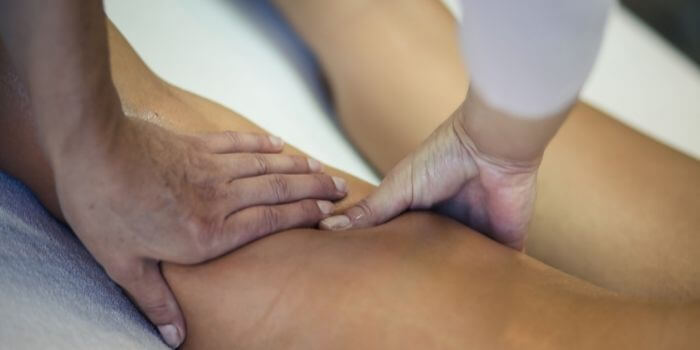
Bergamot oil is an essential oil made from the fruits of the bergamot. The bergamot is a hybrid plant between citrus plants and grapefruit. The valuable, mostly greenish or dark brown oil is produced by pressing the particularly aromatic peel.
The origin of bergamot is unclear: it may have been brought from the Orient by the Crusades or Christopher Columbus from America. However, the plant got its name from the Italian city “Bergamo.”
The fruit from the Rutaceae family is less suitable for consumption because it is too acidic and too bitter for human taste.
The fragrant bergamot oil is used both as an additive for perfumes and in the food industry – for example, as an additive in some black teas such as Earl Grey.
Bergamot is mainly combined with black tea because of its aroma.
Bergamot oil: ingredients and effects

Bergamot oil contains some healthy ingredients.
Bergamot oil is made up of many different chemical compounds. Above all, however, so-called “terpenes” are secondary plant substances. The following are the most prominent:
- Limonene (60+%)
- Linalyl Acetate (15+%)
- Linalool (~10%)
How the ingredients of bergamot oil affect health:
- Reduce Stress: When you inhale bergamot oil, it has been shown to reduce your cortisol (stress hormone). According to a Chinese study, even depression and anxiety can be reduced because the brain is signaled to release the “happy hormones” dopamine and serotonin.
- Antibacterial: Bergamot oil is active against various bacteria found in chicken or lettuce that can cause food poisoning. Bergamot oil can even be effective against life-threatening listeriosis.
- Suitable for the heart & against diabetes: In a study on rats, researchers determined that Bermagotte oil lowers blood triglycerides. These are responsible for the fact that carbohydrates and sugar, in particular, are stored as fat in the body. When too many triglycerides build up in your blood, it can lead to diabetes and increase blood pressure.
- Non-alcoholic fatty liver: The same study found that bergamot oil and a healthy diet can help reduce liver fat levels by as much as 90 percent.
- Pain & Inflammation: The linalool in bergamot oil can act as what is known as an “analgesic” and reduce pain. Scientists determined that pain perception and inflammation values decreased in several studies on different animals.
How To Use Bergamot Oil

An aroma diffuser distributes pleasant scents in the room and healthy active ingredients with bergamot oil.
In the studies mentioned, the aromatherapy method for the effectiveness of bergamot oil has proven to be efficient. You can do this in a number of ways:
Bergamot Oil As Aromatherapy:
- Fragrance oil lamp: Fill your light with water and add a few drops of the precious oil. In this way, the active ingredients are slowly distributed over time in the room.
- Room diffuser: Similar to the lamp, the diffuser also evaporates water and oil in the room. Only he does this through ultrasonic waves. Here, too, a few drops of bergamot oil are sufficient.
- For on the go: Take a neck or handkerchief of your choice and put a few drops on it. So you can keep the cloth about 10 centimeters away from your face and breathe in the active ingredients deeply.
You can also use bergamot oil locally against acne and pimples. However, you should note a few points.
Bergamot Oil for Acne:
You can use the bergamot oil for acnes.
- Dilute 1-2 drops of the oil in a gentle carrier oil (e.g., almond oil or jojoba oil ) or non-irritating skin cream.
- Do not use bergamot oil throughout the day. It can make your skin photosensitive, and UV rays can irritate it further.
Note: Bergamot oil can cause side effects if you apply it undiluted (allergic reaction, rash, and redness) or take it orally.
Bergamot oil is used for what?
Bergamot essential oil can be found in perfume, toiletries, and makeup. Other foods and drinks use it, too. Perhaps Earl Gray tea is its most well-known use. Bergamot essential oil has a lot of therapeutic benefits, which makes it a popular choice for aromatherapists and people who like essential oils.
Does bergamot oil really work?
Bergamot Essential Oil is different from other citrus-based oils. It can be calming and energizing simultaneously, making it unique. These properties make bergamot oil great for relieving anxiety and stress while also making you feel more relaxed.
This oil is also cleansing and detoxifying, making it a good choice for facial treatments and massages because it can be used on the skin.
You should always dilute bergamot oil by mixing it with another oil before putting it on your skin. This is to avoid irritating your skin.
This popular oil is said to help with many different things, both anecdotally and in traditional medicine, making it sound like a one-stop-shop. As a result, there isn’t much proof to back up many of these claims.
Here, we only talk about the most well-known bergamot benefits and the safest ways to use them.
Now, here are some tips for using Bergamot Oil
First, you need to know how to use bergamot essential oil. The method you choose is mainly based on what you want to achieve.
1- Inhale The Bergamot Oil.
Bergamot oil has a calming scent that many people like to smell. Bergamot is an excellent scent for diffusing in your home. You can add a few drops to a diffuser to make it smell good. isn’t it?
Bergamot essential oil can be added to the hot wax of a lit candle to make it smell good. You can also add bergamot oil to a bowl of hot water and breathe in the steam.
2- Bergamot oil is Used in Aromatherapy Massages

You can use Bergamot oil in aromatherapy massages. You want a relaxing but refreshing smell, like when you want your skin to feel soft and smooth. Antibacterial and anti-inflammatory properties make bergamot good for your skin, so it’s also good for you.
However, you should not apply bergamot oil to your skin because it can cause your skin to be itchy.
Some drops of the essential oil should be mixed with a tablespoon of oil that isn’t the essential oil itself, like coconut or jojoba oil. Once it’s mixed, you can massage it into your skin. At the same time, you enjoy the calming and invigorating aroma of bergamot essential oil.
Bergamot oil is used to make an aromatherapy bath for your body.
When you add bergamot oil to your bath, you can enjoy all the great things this oil can do. It’s essential to mix the bergamot oil with a carrier oil like grapeseed or jojoba oil before adding it to your bath. You can also use sweet almond oil. Mix it with full-fat cow’s milk so that the essential oil can spread well in the water.
3- In the room, Bergamot Oil is used to make it smell good.
A clean spray bottle filled with warm water can be used to target your bergamot essential oil. You can add a few drops to the bottle and shake it well. When the solution is ready, it can be sprayed on furniture and carpets and in your bedroom or living room.
People use Bergamot oil to relieve stress, as well as to help them get to sleep.
Mindfulness, yoga, and meditation can help people who are stressed out. There is also some evidence that the smell of bergamot can help people relax and lessen their stress.
Bergamot oil has been used to help people relax for a long time.
Suppose you want to improve your mental health and lower your levels of the stress hormone cortisol. In that case, bergamot essential oil is an excellent thing to use. People who took part in this study also said they felt less tired.
To use bergamot oil to help you relax or deal with stress, mix it with a carrier oil like sweet almond, jojoba, or avocado oil first. You can rub it into the skin or add it to a bath to use it.
There are Volant Aromatherapy Diffusers that you can use to smell Bergamot Oil. You can add a few drops of Bergamot Oil to it.
4- Bergamot Oil is suitable for people who are stressed out.
Many people find bergamot essential oil to be very good at relieving anxiety symptoms. Bergamot oil has been shown to help with anxiety in a few studies.
It was found that bergamot essential oil helped people who had problems with their moods. You can send signals to your body’s olfactory system by inhaling bergamot oil. This causes your body to make more dopamine and serotonin. This led to a change in mood.
Another study from 2017 looked at how exposing women to the scent of bergamot oil for 15 minutes each week while they were at a mental health clinic made them feel better about their lives.
In a study over eight weekly visits, the women who inhaled bergamot oil had a positive and negative affect scale (PNAS) score of 17% higher than those who inhaled a placebo. This shows that bergamot essential oil can improve both mood and anxiety.
You can use bergamot essential oil to relieve stress and anxiety.
5- Bergamot Oil Can Help You Get to Sleep At Night.
| Application mentally: | Calms the nerves in case of restlessness, stress, burnout, anxiety, mood swings | Psychological effect : | Anxiolytic, antidepressant, balancing, calming, stabilizing, mood-enhancing |
| Application physical: | Skincare, itching, muscle tension, cystitis | Effect physical: | antibacterial, antiviral, disinfecting, draining, anti-inflammatory, antipyretic, skin regenerating, room air purifying, antispasmodic, sleep-inducing |
Sleep is essential for overall health, longevity, and mood.
Essential oils can help you get better sleep. Its most known essential oil is lavender oil. However, bergamot oils might be helpful in this regard.
On the other hand, Citrus-based oils are usually invigorating and energizing. However, because bergamot essential oil is a citrus oil, it has a unique ability to make the body changes that lead to sleep. Reducing heart rate and lower blood pressure are two of them.
As a result, many people have trouble sleeping because they are afraid or stressed. It helps clear your mind and get you ready to go to sleep. Bergamot essential oil has a calming and uplifting scent.
Cortisol and adrenaline levels also drop, making your mind more peaceful and relaxed.
A study at a cardiac rehabilitation center found that bergamot oil improved sleep quality and reduced the number of nocturnal awakenings. There are many different essential oils, and bergamot could be the one for you if you want to sleep at night.
Bergamot is a specialty among citrus oils, known for their invigorating effects. The ingredients of bergamot are similar to those of lavender, which means that bergamot has a calming effect. At the same time, it has a mood-enhancing effect and is used as a balancing scent in cases of emotional imbalance.
6- Bergamot Oil Helps with Pain
Bergamot essential oil is also known to ease pain and reduce inflammation. This is because the compounds linalool and carvacrol are found in bergamot oil, which is why it smells like this.
A study published in 2015 found that bergamot oil was good for people who have long-term pain. This study found that bergamot oil helped people with neuropathic pain, which can be hard to treat with opioids.
Essential oils can make people and animals less likely to feel pain, according to a review of studies done in 2019. It was found that both carvacrol and linalool have anti-inflammatory and analgesic properties, making them good pain relievers for people in pain.
Related: Find Out Now, What Should You Do For Rosemary Oil?
Then, you can massage the bergamot essential oil into the area where you are in pain. You can also try inhaling the smell of bergamot oil to help relieve pain.
7- It is suitable for the skin to use Bergamot oil.
Bergamot essential oil is often used to treat acne because it has antibacterial and anti-inflammatory properties that can help clear up acne. It is also good for cysts and pimples, and it can help relieve pain. However, don’t apply bergamot oil to your skin if you have sensitive skin. You should always do a patch test before using it on your skin.
People who have acne, cysts, and blackheads can put bergamot oil mixed with a carrier oil on their skin and let it dry. Let it stay overnight and wash it off in the morning. However, this works: Don’t leave it on all day because bergamot oil can make your skin more sensitive to the sun.
People with oily or acne-prone skin should use jojoba oil as an oil carrier and add the essential oil of bergamot to it. Balances excess oil production on your skin with jojoba oil, both light and nourishing. This makes sure that your pores stay clean and clear.
You can also use it for skin almond oil
Related: Almond Oil Benefits For Hair, Skin, and Health
Bergamot face mask: Mix 50g of plain yogurt with 2-3 drops of bergamot oil and put it on your face. You should put the mask on your face and then lay back and do nothing for about 20 minutes. The milk proteins will soothe and nourish your skin, and the bergamot oil will fight pimples and blackheads with the help of the oil itself. Because your skin will be hydrated and refreshed as soon as you rinse off your face mask with warm water, it will look and feel better.
8- This is How To Use Bergamot Oil For Your Hair
Because bergamot oil is moisturizing and nourishing, many people use it to keep their hair healthy, soft, and shiny, and they say it works. Putting bergamot oil on your hair might help you get a smoother head of hair.
Many people say that bergamot oil makes your hair grow faster and more robust. There is some evidence that this essential oil helps the blood flow in the scalp, which allows the hair follicles to get the nutrients and oxygen they need.
This, in turn, leads to healthy growth.
So, mix a few drops of bergamot oil with a carrier oil like avocado, jojoba, or coconut oil and massage it into your scalp to eliminate the smell. Rinse it off after leaving it on for a while. The result is hair that is soft and smells great. It looks like the stars.
The side effects of Bergamot Oil
While bergamot oil has many benefits, there are also some things to be aware of.
You should always mix bergamot oil with another oil before putting it on your skin. Bergamot oil should never be used on your skin in undiluted or pure form because it can irritate and make your skin red and itchy.
It can be challenging for some people to use bergamot essential oil on their skin, even if they mix it with another oil. Your patch must test your chosen blend before spreading it more generously over your skin.
When someone has an allergic reaction or is sensitive to bergamot oil, their skin may become red or have a burning sensation and hives or blisters. As soon as you notice any of these symptoms, wash the fat off your skin and call your doctor for help.
Toxic: Bergapten, which can be found in bergamot oil, can cause sunburns. This means that it can cause skin irritation or damage when in the sun. So, before going outside, you should wash the bergamot oil off your skin with soap and water.
